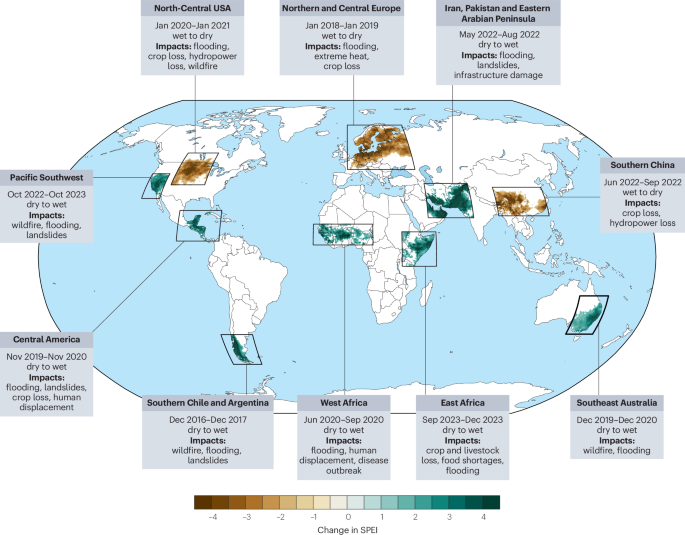John Farley
Supporter
This article seems relevant in the context of the Los Angeles firestorms. A major contributing factor to those is a huge swing from exceptionally wet winters two years ago and last winter to an exceptionally dry one now. This contributes to fire risk, because the previous two wet winters led to a great deal of vegetation growth over the past year and a half, which has now dried out due to this year's bone dry winter. Add this prolific dried-out vegetation to a high-wind event, and you have a perfect recipe for rampant fire. The article linked here shows that these swings between very wet and very dry weather, although they have always occurred to some extent, have become increasingly frequent, probably as a result of climate change.

 www.nature.com
www.nature.com

Hydroclimate volatility on a warming Earth - Nature Reviews Earth & Environment
Rapid transitions between extreme wet and extreme dry conditions — ‘hydroclimate whiplash’ — have marked environmental and societal impacts. This Review outlines observed and projected changes in hydroclimate whiplash, suggesting that subseasonal and interannual volatility will increase markedly...
